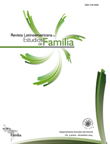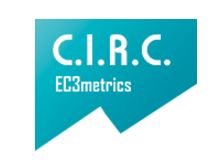Authors
Abstract
Abstract: This research aimed to identifyand compare the characteristics of self-concept dimensions within a sample of 85 university students belonging to the History and to Social Sciences Bachelor Programsat the Universidad de Caldas in the city of Manizales, Colombia. It is a cross-sectional and inferential type of study with three variables: gender, semester and self-concept dimensions. The MINI International Neuropsychiatric Interview (Sheehan et al. 1997) and the AF5 Self-Concept Questionnaire (García&Musitu, 2009) were used in this study. In the analysis of the information, the performance in the dimensions of the self-concept is compared, according to gender, to the first and last academic semester students of the programs subject to the study. The results showmale students with self-concept over the averages of the scale being the family factor the one with the highest score. Females show a high physical selfconceptduring the first semester of their career but while time passes and they advance in their studies, they achieve better scores in the family, academic and labor factors. The average scores obtained were statistically superior higher than the test scale. It is recommended to carry out studies to standardize the AF5 Test in Colombia to meet, with more ecological validity, the assessment of self-concept as a psychological construct in regional contexts.
References
Amezcua, Juan y María Pichardo. 2000. Diferencias de género en autoconcepto en sujetos adolescentes. Anales de Psicología 16 (2): 207-214.
Amezcua, J.A. y E. Fernández. 2000. La influencia del autoconcepto en el rendimiento académico. Iberpsicología. http://www.fefap.es/IberPsicología/iberpsi5-1/amezcua/amezcua.htm. (Recuperado el 5 de julio de 2013).
Arranz, E., F. Yenes, F. Olabarrieta y J.L. Martín. 2001. Relaciones entre hermanos y desarrollo psicológico en escolares. Infancia y Aprendizaje 24: 361-377.
Aznar, M.P.M. 2004. The impact of domestic violence on the health of abused women. Psicothema 16:397-401.
Ballester, L., C. March y C. Orte. 2006. Autoconcepto, estilos de afrontamiento y conducta del alumnado universitario. Aposta. Revista de Ciencias Sociales 27: 1-22.
Burgess, P.W., N. Alderman, C. Forbes, A. Costello, L.M. Coates, D.R. Dawson et al. 2006. The case for development and use of “ecologically valid” measures of executive funtion in experimental and clinical neurpsychology. Journal of the international neuropsychological society 12: 194-209.
Broc, M.A. 2000. Autoconcepto, autoestima y rendimiento académico en alumnos de 4º de ESO. Implicaciones psicopedagógicas en la orientación y tutoría. Revista de investigación educativa 18 (1): 119-146.
Calvo, A., R. Gónzalez, M. Martorell. 2001. Variables relacionadas con la conducta prosocial en la infancia y la adolescencia: personalidad, autoconcepto y género. Infancia y aprendizaje 24 (1): 95-111.
Esnaola, Igor, Alfredo Goñi y José María Madariaga. 2008. El autoconcepto: perspectivas de investigación. Revista de Psicodidáctica 13 (1): 179-194.
Esnaola, Igor. 2008. El autoconcepto físico durante el ciclo vital. Revista Anales de Psicología 24 (1): 1-8.
Fuentes, M., F. García, E. Gracia y M. Lila. 2011. Autoconcepto y ajuste psicosocial en la adolescencia. Revista Psicothema 23 (1): 7-12.
García, F. y G. Musitu. 2009. Manual del AF5. Autoconcepto forma 5. Madrid: TEA Ediciones.
García Molina, A., J. Tirapu Ustárroz, T. Roig Rovira. 2007. Validez ecológica en la exploración de las funciones ejecutivas. Anales de Psicología 23 (2): 289-299
Garaigordobil, M., J. Alirie y I. Fontaneda. 2009. Bienestar psicológico subjetivo: Diferencias de sexo, relaciones con dimensiones de personalidad y variables predictoras. Psicología conductual 17 (3): 543-559.
Lila, M., G. Musitu, S. Buelga. 2000. Adolescentes colombianos y españoles: diferencias, similitudes y relaciones entre la socialización familiar, la autoestima y los valores. Revista Latinoamericana de Psicología 32 (2): 301-319.
Maddio, S. y G. Morelato. 2009. Autoconcepto y habilidades cognitivas de solución de problemas interpersonales en escolares argentinos: estudio comparativo. Interamerican Journal of Psycology 43 (2):213-221.
Matalinares, M., C. Arenas, A. Dioses, R. Muratta, C. Pareja, G. Acosta et al. 2005. Inteligencia emocional y autoconcepto en colegiales de Lima metropolitana. Revista de Investigación en Psicología 8 (2): 41-55.
Ministerio de Educación Nacional. 2010. Acciones y lecciones. Revolución Educativa 2002-2010. Bogotá: Ministerio de Educación Nacional.
Musitu, G. y J.F. García. 2004. Consequences of the family socialization in the Spanish culture.Psicothema 16: 288-293.
Núñez Pérez, J., J. González Pineda, M. García Rodríguez, S. González Pumariega, C. Roces Montero, L. Álvarez Pérez, M. González Torres. 1998. Estrategias de aprendizaje, autoconcepto y rendimiento académica. Psichothema 10 (1): 97-107.
Reyes G. 2003. Autoconcepto académico y percepción familiar. Revista Galego-Portuguesa de Psicología y Educación 7 (8): 359-374.
Rodríguez, S., R.G. Cabanach, A. Valle, J.C. Núñez y J.A. González-Pineda. 2004. Differences in use of self-handicapping and defensive pessimism and its relation with achievement goals, self-esteem and self-regulation strategies. Psicothema 16: 625-631.
Salum-Fares, A., R. Marín Aguilar y C. Reyes Anaya. 2011. Relevancia de las dimensiones del autoconcepto en estudiantes de escuelas secundarias de ciudad Victoria, Tamaulipas, México. Revista Electrónica de Psicología Iztacala 14 (2): 255-272.
Sheehan, D., Y. Lecrubier, J. Harnett Sheehan, E. Janavs, L. Weiller, I. Bonora, A. Keskiner et al. 1997. Reliability and Validity of the Mini International Neuropsychiatric Interview (MINI): According to the SCID – P. European. Psychiatry 12: 232–241.
Sheskin, D.J. 2007. Handbook of parametric and nonparametric statistical procedures. Chapman & Hall/CRC. Boca Ratón Florida: Taylor & Francis Group.
Ospina, D. 2001. Introducción al muestreo. Bogotá: Universidad Nacional de Colombia.
Santana, L., L. Feliciano y A. Jiménez. 2009. Autoconcepto académico y toma de decisiones en el alumnado de bachillerato. Revista española de orientación y psicopedagogía REOP 20 (1): 61-75.
Sbordone, R.J. 1998. Ecological Validity. Some critical issues for the neuropsychologist. In Ecological validity of neuropsychological testing, eds. R.J. Sbordone & C.J. Long, 15-41. Boca Ratón: St. Lucie Press.
Véliz Burgos, A. y P. Apodaca. 2012. Niveles de autoconcepto, eficacia académica, y bienestar psicológico en estudiantes universitarios de la ciudad de Temuco. Revista de Salud & Sociedad 3 (2): 131-150.
Véliz Burgos, Alex L. 2010. Dimensiones del autoconcepto en estudiantes chilenos: un estudio psicométrico. Tesis de grado para optar al título de Doctor. Universidad del País Vasco.
Villarroel, V. 2001. Relación entre autoconcepto y rendimiento académico. Psykhe 10 (1): 3-18.
Walpole, Ronald E., Raymond H. Myers, Sharon L. Myers. 1999. Probabilidad y estadística para ingenieros. México: Prentice Hall Hispanoamericana, S.A.

 PDF (Español)
PDF (Español)
 FLIP
FLIP





















